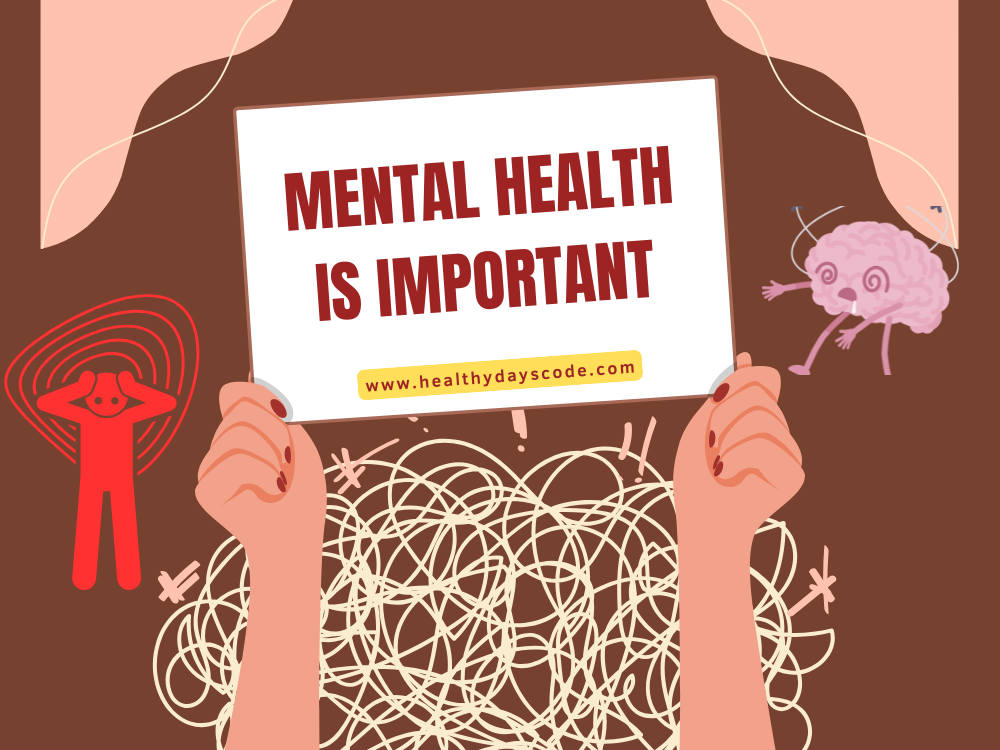
The Most Dangerous Mental Health Problems in 2024
As we navigate through the complexities of the modern world, mental health has emerged as a crucial area of concern. The pressures of daily life, exacerbated by global crises, social media, and economic instability, have led to a rise in various mental health issues. In 2024, several mental health problems stand out due to their dangerous implications for individuals and society at large. This article explores the most pressing mental health problems of the year, examining their causes, symptoms, and the potential consequences if left untreated.
1. Anxiety Disorders
Overview
Anxiety disorders, which include generalized anxiety disorder (GAD), panic disorder, social anxiety disorder, and specific phobias, are among the most prevalent mental health issues today. As of 2024, it is estimated that nearly 30% of the global population will experience some form of anxiety disorder at some point in their lives.
Causes and Symptoms
The rise in anxiety disorders can be attributed to various factors, including the constant barrage of information from digital devices, financial uncertainties, and the lingering effects of the COVID-19 pandemic. Symptoms may range from excessive worry and restlessness to physical symptoms like increased heart rate and panic attacks.
Implications
If left untreated, anxiety disorders can lead to debilitating consequences, such as impaired social functioning, decreased productivity, and even the development of comorbid conditions like depression. The risk of substance abuse also increases as individuals may turn to drugs or alcohol as coping mechanisms.
2. Depression
Overview
Depression remains one of the leading causes of disability worldwide. The World Health Organization (WHO) reports that over 264 million people are affected by depression, and this figure is expected to rise as societal pressures mount.
Causes and Symptoms
Factors contributing to depression in 2024 include social isolation, economic stress, and heightened awareness of global issues such as climate change and political unrest. Symptoms can vary significantly, but common signs include persistent sadness, loss of interest in activities, and changes in appetite or sleep patterns.
Implications
The dangers of untreated depression are profound. It can lead to severe health issues, including heart disease and diabetes, and significantly increases the risk of suicide. In 2024, mental health professionals are emphasizing the importance of early intervention to mitigate these risks.
3. Eating Disorders
Overview
Eating disorders, including anorexia nervosa, bulimia nervosa, and binge-eating disorder, are becoming increasingly dangerous. In recent years, the prevalence of these disorders has surged, particularly among adolescents and young adults, driven by societal pressures and unrealistic body standards propagated by social media.
Causes and Symptoms
Contributing factors include cultural ideals of beauty, trauma, and perfectionism. Symptoms can manifest in various ways, such as extreme weight loss, binge-eating episodes, or excessive exercise. The psychological toll of these disorders often exacerbates the physical health risks, making them particularly dangerous.
Implications
Eating disorders have one of the highest mortality rates among mental health conditions. Individuals with severe cases can suffer from life-threatening complications, including heart failure, kidney damage, and even death. Recognizing and addressing these disorders promptly is essential for improving outcomes.
4. Substance Use Disorders
Overview
Substance use disorders (SUDs) remain a significant public health crisis in 2024. The opioid epidemic continues to wreak havoc on communities, while the rise of synthetic drugs presents new challenges for treatment and prevention.
Causes and Symptoms
Factors such as economic hardship, social isolation, and a lack of access to mental health services contribute to the prevalence of SUDs. Symptoms can range from cravings and withdrawal symptoms to social and legal issues stemming from substance use.
Implications
The dangers of untreated substance use disorders extend beyond the individual, affecting families and communities. Increased crime rates, healthcare costs, and loss of productivity are just a few consequences of untreated addiction. Comprehensive treatment strategies are necessary to combat this ongoing crisis.
5. Post-Traumatic Stress Disorder (PTSD)
Overview
PTSD is a serious mental health condition that arises after experiencing or witnessing traumatic events. The ongoing global crises, including natural disasters, conflicts, and the aftermath of the pandemic, have led to an increase in PTSD cases in 2024.
Causes and Symptoms
PTSD can develop after exposure to traumatic experiences, such as violence, abuse, or severe accidents. Symptoms include flashbacks, nightmares, severe anxiety, and uncontrollable thoughts about the event. Many individuals may not recognize their symptoms as PTSD, leading to prolonged suffering.
Implications
Untreated PTSD can lead to chronic issues, including depression, anxiety, and substance abuse. The societal implications are significant, as untreated PTSD can impact relationships, work performance, and overall quality of life. Early intervention and appropriate therapeutic approaches are crucial for recovery.
Conclusion
As we advance into 2024, the landscape of mental health continues to evolve, revealing the urgent need for awareness, understanding, and action. The most dangerous mental health problems—anxiety disorders, depression, eating disorders, substance use disorders, and PTSD—require immediate attention from both individuals and society. Comprehensive mental health strategies, including early intervention, accessible treatment options, and destigmatization efforts, are vital in addressing these issues. By prioritizing mental health, we can create a healthier future for individuals and communities worldwide.
